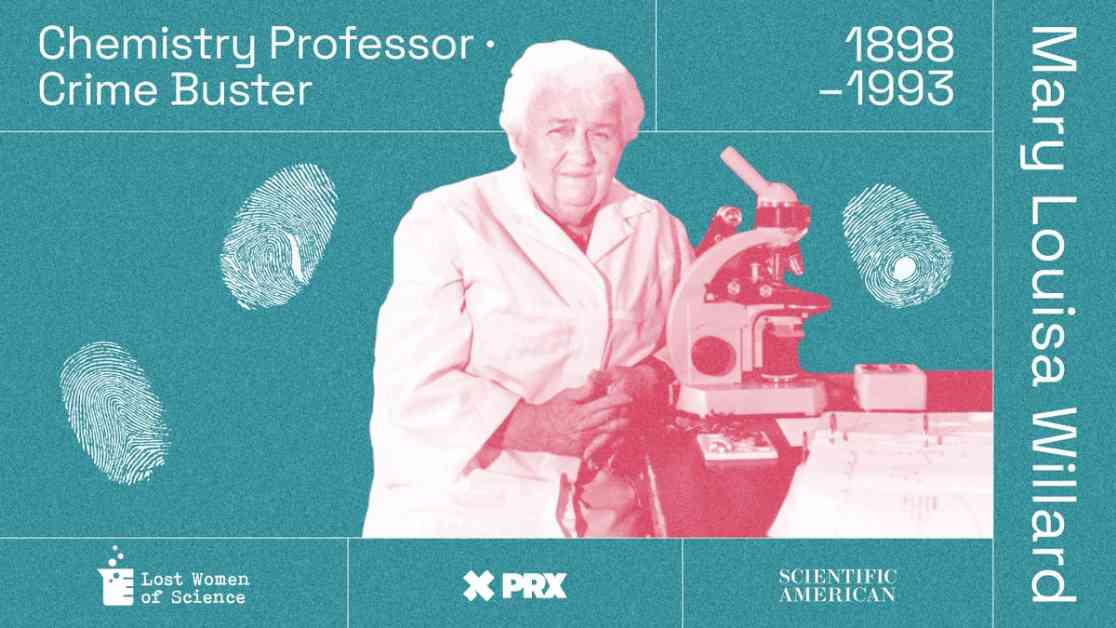Mary Louisa Willard, a chemistry professor at Pennsylvania State University, was known for her colorful personality in her hometown of State College, Pa. Beyond her eccentricities, she had a side hustle as a forensic criminologist, helping law enforcement solve crimes using cutting-edge science. Sarah Wyman, a chemistry professor, joined Carol Sutton Lewis to share the story of Mary Louisa Willard. Mary was born and raised on the Penn State campus, coming from an academic family deeply embedded in the university’s history. She graduated from Penn State with a bachelor’s in chemistry in 1921 and went on to earn a master’s and a Ph.D. in organic chemistry from Cornell.
Mary’s interest in microscopy led her to become an expert in chemical microscopy, which she eventually applied to forensic science. At a time when forensic science was still emerging, Mary’s expertise was invaluable in solving crimes. She used her knowledge to analyze substances found at crime scenes, from poisons to paint samples, helping law enforcement identify culprits and present evidence in court. Mary’s work as a forensic scientist extended beyond her role as a professor, as she frequently assisted with criminal investigations on a pro bono basis.
One notable case involved the mysterious deaths of chickens on a local farm, where Mary used chemical microscopy to determine that arsenic poisoning was the cause. Through meticulous analysis of samples and evidence, Mary was able to exonerate a wrongfully accused neighbor. Her work extended to major criminal trials, where she testified as an expert witness, helping secure convictions in cases involving arson and murder.
Despite her success in solving crimes, Mary was also dedicated to educating future generations of scientists. She emphasized the importance of evidence collection and analysis in criminal investigations, advocating for more police officers to receive training in the sciences. Mary’s impact as an educator was profound, as evidenced by the scholarship endowed in her name by a former student who praised her dedication and attention to her students.
Mary Louisa Willard’s legacy as a pioneering forensic scientist and dedicated educator lives on through her contributions to the field of chemistry and criminology. Her ability to apply scientific principles to real-world problems and her commitment to seeking justice through evidence-based analysis continue to inspire future generations of scientists and law enforcement professionals. Mary Louisa Willard, the “Lady Sherlock” of chemistry, remains a testament to the power of science in solving crimes and seeking truth.



